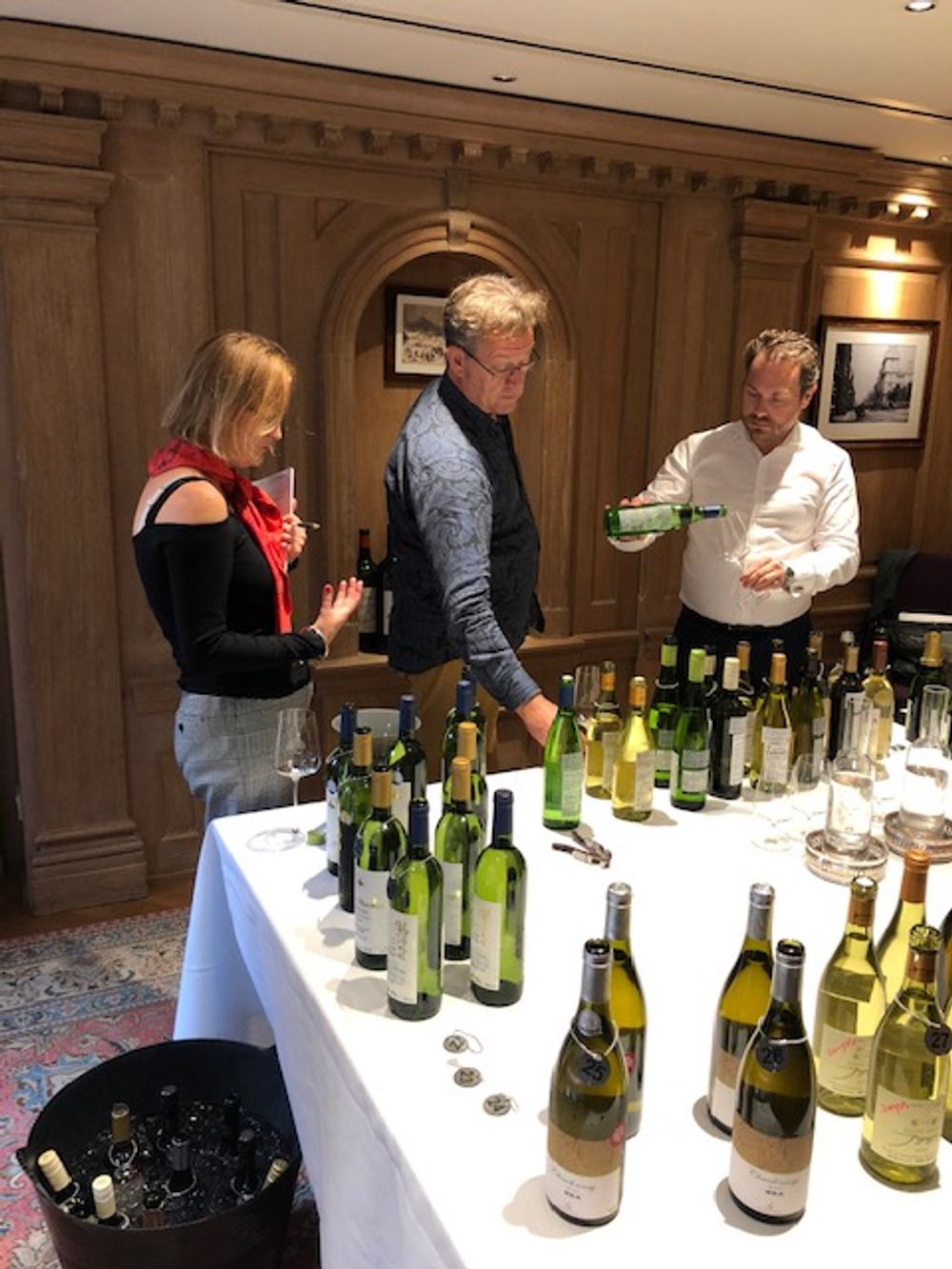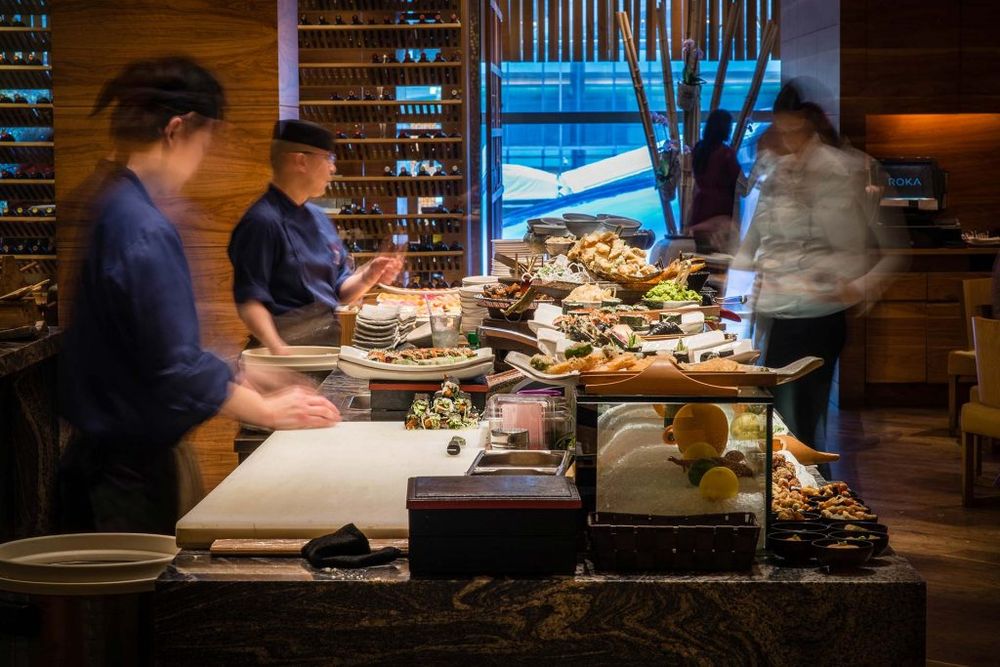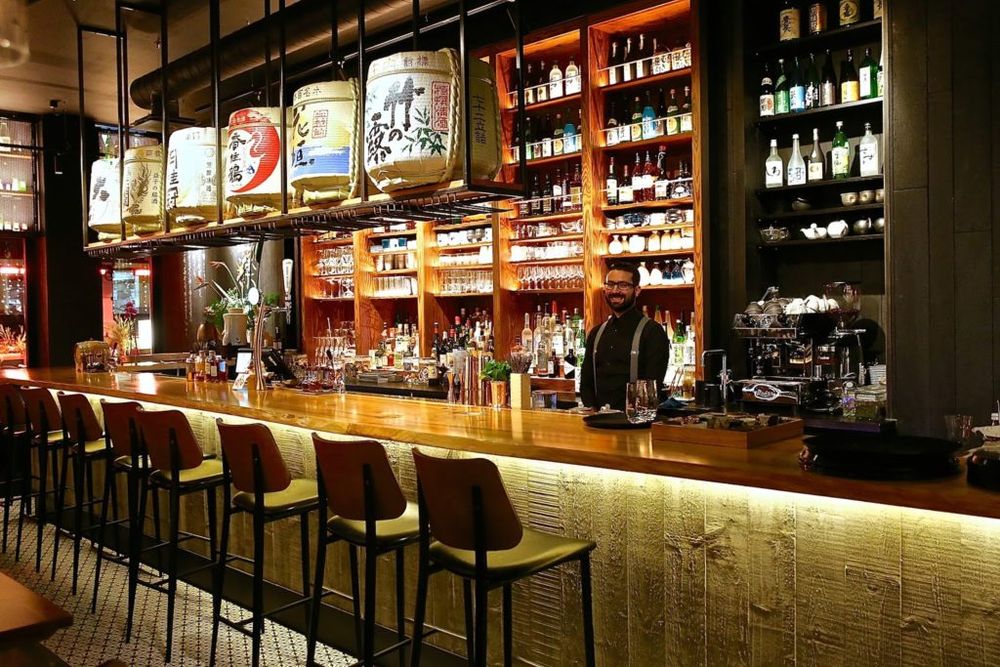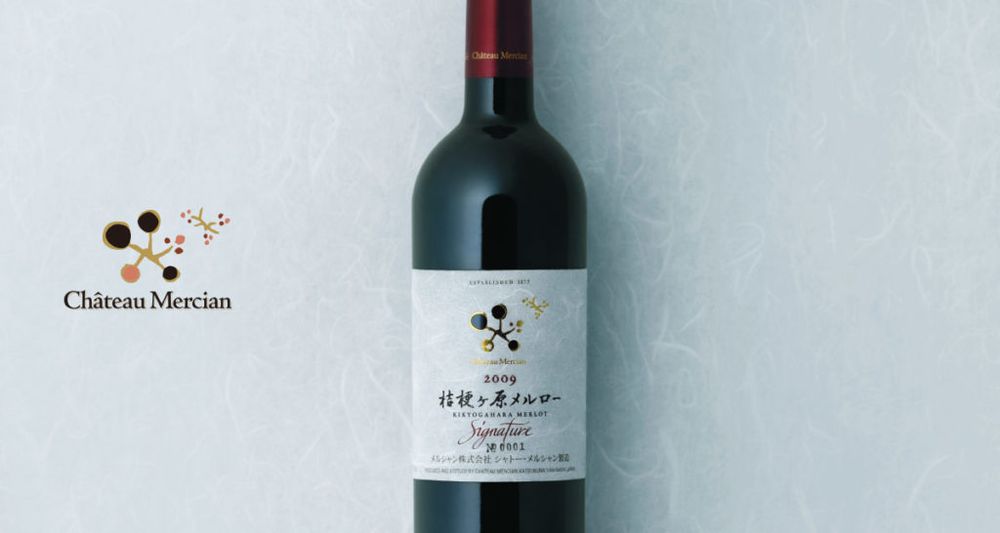Japanese wines are slowly starting to turn the heads of influential buyers and sommeliers, but the best is yet to come, says Sarah Abbott MW, who urges anyone interested in seeing the shining stars from Japan to head to Bristol on February 20 for the latest Wines of Japan wine tasting.
You have some experience of working with potentially emerging wine countries and regions. How do you go about assessing what their real potential is?

Sarah Abbott MW holds benchmark tastings with key buyers and influential voices in the UK market to feedback their views to Japanese producers
I see potential – in the sense of untapped power – everywhere in wine. The power to connect with new ideas, new techniques, new consumers, and new ideas of what is beautiful, and interesting, and true –in the sense of being typical and expressive of origin. Potential is in the underestimated corners of established regions, and in emerging regions at the frontiers of terroir.
For those emerging regions, I do a lot of research. I read all the articles and blog posts I can find on the country, or region. Including those not in English. Despite the limitations of Google translate, you can get a good idea. I talk to my contacts and friends (marketing consultants, flying winemakers, distributors and communicators) all over the world and ask them what they think. In fact, many of the flying winemakers and viticulturists whom I come across in one region or country, I encounter again when I start researching a new ‘weird’ region. It’s like a brotherhood of people working at the frontiers of wine.
I look at the competitions they’ve entered, and compare results. I look at who the judges were, and see what other wines have done well in those awards.
I ask importers, sommeliers and wholesalers who are active in the UK, (and, increasingly, other major importing markets such as North America and the Nordics) what they’ve tried from the region. Have they assessed and then rejected any of their wines? Have they imported and then given up? If they’re working with these wines, how is it going? What are their challenges?
I taste as many wines as I can. I fit in at least one visit to any region before we consider taking on any work.I talk to as many producers as possible, from as many different types of company as possible. For a region, or country, to thrive in competitive markets such as the UK, they need to have, or to be capable of developing, a healthy, diverse eco-system of producers. They need soulful artisans, dynamic co-operatives and everything in between. I research the level of structure within the industry.

Landmark restaurants like Roka are really helping to push more premium wines from Japan
How supported are they by local and regional government? Is there funding to allow them to plan strategically, and with patience? Do they have regulatory protection against fraud and for quality? Is individual intellectual property protected? How open is their region or country to FDI? Do they have recognised GIs? Or (and this is not ideal) are they entirely on their own, reliant on groups of producers coming together to create their own structures.
How aware are producers of the structure and needs of our market? Do they understand how their ex-cellar price will translate to the on-shelf or on-list price? Do they have some natural heroes in their general output that can slide effortlessly into our market requirements? Can they take advantage of our market trends in terms of the boom in certain styles?
The urge, and I understand it, is to throw all the effort and funds into immediate promotion and profile raising. But the quality, diversity and specificity of their shared “Wine Proposition” must be articulated first. And the key with emerging regions, which, by the way, are all-too-easily still sniggered at by the established trade, is to open the market by showing wines of the highest quality and arrestingly distinctive character. There may be only a handful of producers currently achieving those things in an emerging region. You have to give the stage to them, and allow them to create the interest and reputation, and to hell with any internal politics. It helps if the target market has heard of the country, or has a clue where it is, and has some positive associations about it. Those associations don’t need to be about wine. They can be about any aspect of culture. Although positive associations with food and drinks are the most helpful.
In some cases, I come to the conclusion that there is simply not enough depth of quality or identity to make the region ready to come to market. Instead, it needs help on industry training, wine styles, technical quality, key messages, and overall strategic development. They key is to persuade regions and countries to invest in those areas first. Sometimes I succeed, and sometimes I just step back. A lot of money and producer confidence can be squandered on premature or unfocused marketing, and it upsets me too much to work like that!
All the other challenges (and there are many!) can be overcome, with time and focus, so long as the essential proposition and interesting quality is there.
What attracted you to Japanese wines – why do you think they are so well placed?

Premium, stylish, fun and breakthrough Japanese restaurants like Sakagura are really helping to bring Japanese wine to new interested consumers
They have all of the attributes on my “Are you ready?” list.
Wines of high quality and distinctive, elegant, character; diverse wine styles from indigenous and international grapes; high standards of technical expertise; ongoing strategic support from all levels of government; (since 2015) full legal and regulatory protection; hugely desirable and admired food and drink culture; world-class large producers with a benign attitude to developing the market for all, and a young but rapidly growing community or artisan producers.
The best Japanese wines (of all styles) are naturally bright, mineral, light-footed, and fresh. These qualities are in high demand in our market.
Looking ahead to the Bristol tasting on February 20 – what are you looking to offer?
We are offering a walk-around tasting of wines from across Japan, including sparkling, white, red and sweet styles. We are also putting on a tutored tasting. We find that these are hugely popular and appreciated for Japan. So little is known about the country as a wine producer that the appetite for context is huge. We are also running on into the evening, with a consumer tasting in collaboration with trade partners. These consumer tastings give prospective importers and wholesalers a chance to see how their customers respond to the wines. It gives those trade companies insight into how the wines could work for them – what styles are appealing, and how customers are reacting to wine style, packaging, pricing, etc.
Why Bristol?
We started with a Bristol tasting last year, when we hosted a tasting and consumer tasting for Georgian wine. That came about because we were invited by a wine writer and restaurateur who had been to Georgia. The power of passionate individuals is so important for seeding and growing new markets for emerging wines. They get their like-minded mates and colleagues on board – the wholesalers, sommeliers, retailers and restaurateurs whom we need to open the market and tell the stories of these wines to their customers. It was a really successful tasting.
Bristol (like many University cities) is a good fit for developing emerging wines. It has a rich, lively food scene and some excellent wine suppliers. It’s also very cost-effective to add on trade events there. And the percentage attendance vs. registration is incredibly high – you get far fewer ‘no shows’ than with London events. We have all the wines, content and people in place to deliver events in London. It’s cost-effective to extend it to a regional city with the right profile for an emerging region.
Is it brave to leave London for this kind of tasting?
No, it’s very sensible. You just need to make sure you’re focused and clear about why you’re doing it.
What are your big hopes and ambitions for Japanese wine in 2019?

Chateau Mercian has recently been taken on by Boutinot
We have already had a major new agency for Japanese wine in 2018. Boutinot have started working with Château Mercian. And we have secured some new listings for wines with existing importers through our liaison with on-trade consultants and buyers. One focus is on creating a demand for and excitement around Japanese wine that makes it easy for the wines already in the market to be listed and sold through.
There are some brilliant wines already available to the UK from the producers Aruga Branc, Grace Wine, Kurambon, Château Lumiere, and Château Mercian. The second focus is on supporting more wineries to enter the market. Finally, we are aiming to expand the repertoire of Japanese wine beyond Koshu, characterful and appealing though it is, to show the huge diversity of styles now coming from Japan. Honestly, Japanese Zweigelt is delicious. I would love to make that, and other elegant Japanese reds, “a thing” in 2019.
- The Wines of Japan tasting on February 20 takes place at Riverstation, The Grove, Bristol, BS1 4RB between 12.30pm and 4.30pm. There is also a an introductory Masterclass from 11.30 – 12.30, hosted by Sarah Abbott MW. The Masterclass will give an overview into Japanese viticulture, winemaking and terroirs. Spaces are limited so please book early to avoid disappointment. For those who cannot make the Masterclass at 11:30, Sarah Abbott MW will be hosting a wine walk at 3pm. For more information and to register click here. There is also a consumer event taking place on the same day at the same venue between 6pm and 8pm.






























